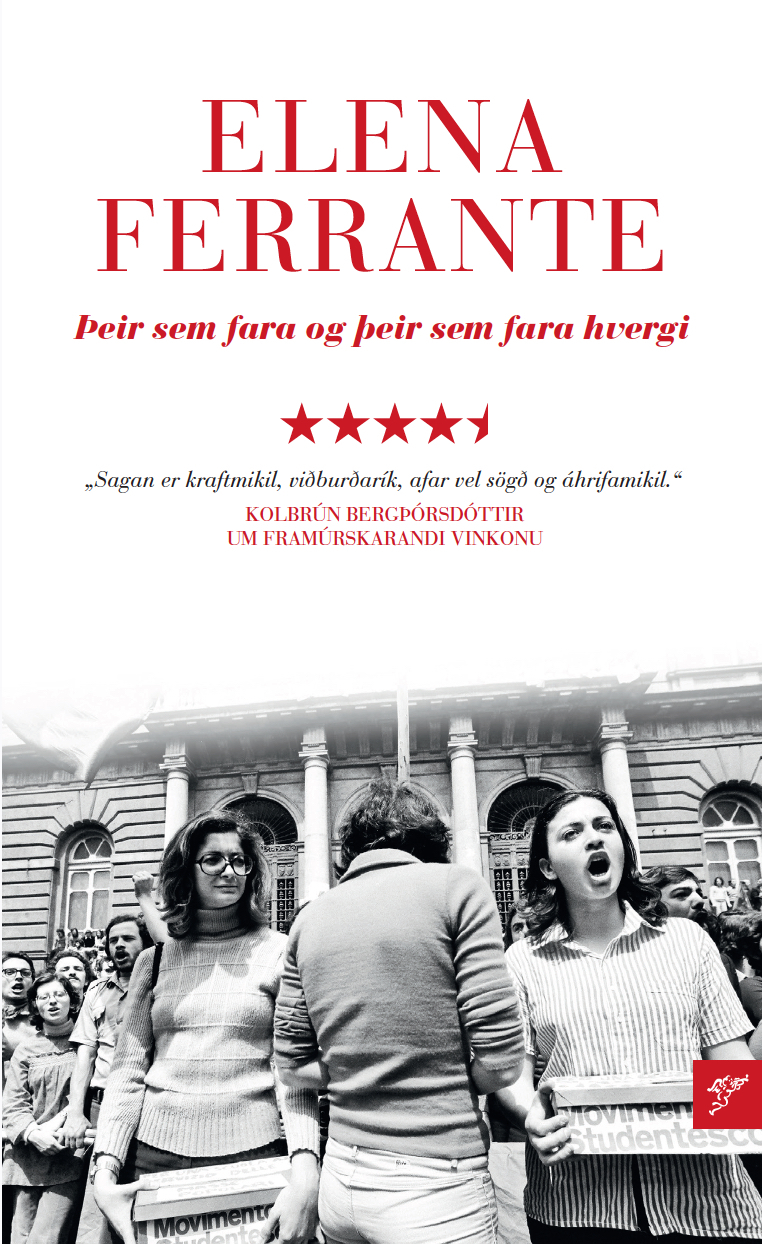What do you think?
Rate this book


425 pages, Paperback
First published October 30, 2013
"I can't wait to leave [the neighborhood]," I exclaimed.
"You're strong," [Lila] answered, to my astonishment. "I have never been. The better and truer you feel, the farther away you go. If I merely pass through the tunnel of the stradone, I'm scared. Remember when we tried to get to the sea but it started raining? Which of us wanted to keep going and which of us made an about-face, you or me?"
[Elena wanted to keep going, by the way]
I sometimes imagined what my life and Lila's would have been if we had both taken the test for admission to middle school and then high school, if together we had studied to get our degree, elbow to elbow, allied, a perfect couple, the sum of intellectual energies, of the pleasures of understanding and the imagination. We would have written together, we would have been authors together, we would have drawn power from each other, we would have fought shoulder to shoulder because what was ours was inimitably ours. The solitude of women's minds is regrettable, I said to myself, it's a waste to be separated from each other, without procedures, without tradition.
And at least Enzo in front of him, in the factory, women worn out by the work, by humiliations, by domestic obligations no less than Lila was. Yet now they were both angry because of the conditions she worked in; they couldn’t tolerate it. You had to hide everything from men. They preferred not to know, they preferred to pretend that what happened at the hands of the boss miraculously didn’t happen to the women important to them and that—this was the idea they had grown up with—they had to protect her even at the risk of being killed. In the face of that silence Lila got even angrier. “Fuck off,” she said, “you and the working class.”












Then the wish to telephone her [Lina] returned, to tell her: Listen to what I'm thinking about, please let's talk about it together, you remember what you said about Alfonzo? But the opportunity was gone, lost decades ago. I had to learn to be satisfied with myself. (p. 354)
حاصل این پیروزی اما کجا اهمیتی دارد؟
یک امضا از عریضههای درخواست صلح کمتر.
به لحاظ عینیت چیز زیادی نیست
به لحاظ ذهنیت... بگذریم.
به افراط و بلندتر از همیشه
از دردم گفتهام
همچون کرمی لهیده
که سرش را اندکی بلند میکند
و به خامی زنندهاش تقلا میکند، الخ.
پیروزی فاشیسم!
بنويسید، بنویسید. بگذارید آنان (آنان!) بدانند که من میدانم
آگاه چون پرندهای زخمی
که آرامآرام میمیرد اما هرگز نمیبخشاید.
